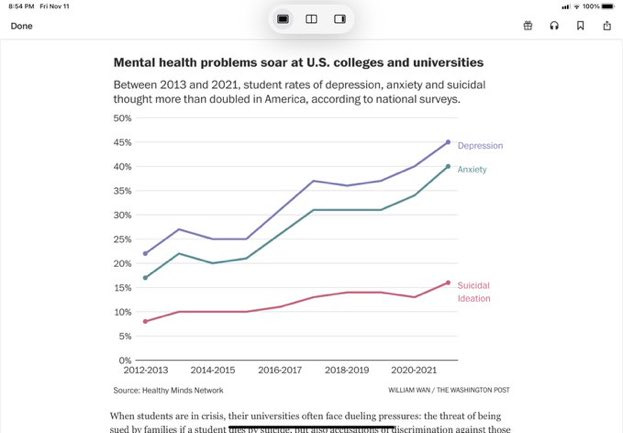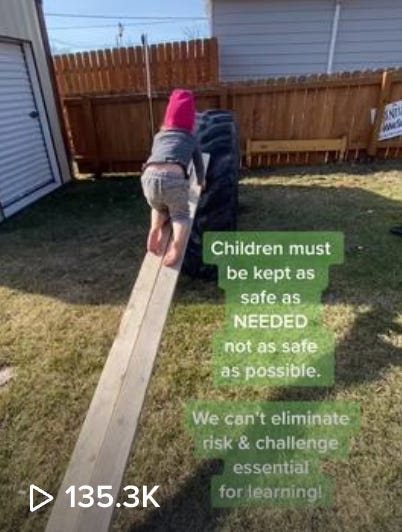Welcome to the eighty sixth edition of Small Talks. Every Friday, I highlight 6 areas of weekly joys and reflections in early childhood and the whole family. Small Talks leverages my experience at the intersection of education, philanthropy, and impact investing. Enjoy!
What I’m celebrating -
Two excellent sister pieces by Jackie Mader on the importance of play for The Hechinger Report
Play should not be seen as tangential to learning, experts say, but should be viewed instead as the natural way young children learn.
“The parts of the brain that are most developed in the early years are the ones that respond to active experiences,” said Dee Ray, a professor of early childhood education and director of the Center for Play Therapy at the University of North Texas College of Education. In contrast, the parts of the brain that allow children to learn by listening to a lecture or watching a video are developed later, she added. “The brain is structured to learn from experience first, and then learn through all the other means that we usually use [to teach],” she said. “Play is essential to education. Play is education for children.”
Humbled to have joined an incredible set of speakers this past week, including former California Surgeon Generation Nadine Burke-Harris, at Activate, an event organized by Mindful Philanthropy to elevate the mental health crisis in youth, and the intersectionality with learning. I had written this piece at the onset of the pandemic, and sadly the crisis continues to grow. Some of the bright spots we discussed are new funding in infant mental health, in dyadic care, in screening for adverse childhood experiences, in school mental health, in research, in new innovations in mental health, and more.
Inspiring story by Emily Tate about how the Valley Settlement community in Colorado is bringing early childhood education to families in rural areas - via traveling preschools.
What I’m listening to -
In this podcast “No One Is Coming To Save Us,” Stephanie Curenton, associate professor at Boston University, talks about her research on the social, cognitive, and language development of low-income and minority children and the work she is doing to create an anti-bias, anti-racist curriculum rubric for early education centers.
What I’m reading -
"Nothing to See Here" by Kevin Wilson is a light and funny read. It is about a nanny who is taking care of two kids who catch "fire" when they are upset. Yes, fire. Lots of humor about the complexity of parenting.
What I’m watching-
Inspiring collection of Tik Tok videos by Jennifer Baumann, child care provider in Nebraska, on learning through play. The early childhood educator - who has been in the field for 22 years, is a Tik Tok celebrity. Read more on her here.
What I’m learning more deeply -
Great piece summarizing the science on how babies detect social bonds.
Wonderful to see the spotlight by EdSurge on the growing movement of “birth equity”—where every baby and new parent getting what they need from the very start. Includes a few quotes from me from a discussion with the reporter Daniel Mollenkamp.
Report “Add Today Multiply Tomorrow: Building an Investment Case for Early Childhood Education”, a collaboration between UNICEF, Education Commission, and the LEGO Foundation, looks at the economic argument of investing in the early years. It recommends allocating at least 10% of education budgets. This would mean more than doubling our U.S. early childhood public investments.
Comprehensive report by BCG on solving the $290Bn care crisis
A quote I’m pondering -
Feedback is a gift. Which part above is your favorite? What did I miss? What do you want more or less of? Other recommendations? Please kindly let me know. Thank to all of you who are sending me amazing suggestions.
If you enjoy this newsletter, please help spread the word by sharing with your friends, colleagues, and networks.
Have a wonderful Thanksgiving. Small Talks will resume in two weeks. Please stay safe and care for each other.
Isabelle











